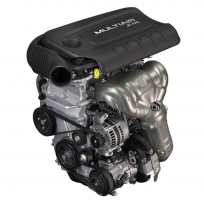
— A Chrysler oil consumption lawsuit alleges these Chrysler, Dodge, Fiat and Jeep vehicles stall while driving because the 2.4L Tigershark engines have piston rings that don't work properly with the cylinders.
- 2014–2020 Jeep Cherokee
- 2017–2020 Jeep Compass
- 2015–2020 Jeep Renegade
- 2015–2016 Chrysler 200
- 2013–2016 Dodge Dart
- 2016–2020 Fiat 500X
According to the Chrysler oil consumption lawsuit, the 2.4L Tigershark MultiAir II engines have severe design and/or manufacturing defects that cause the vehicles to burn too much oil. Vehicle owners must allegedly constantly add oil, visit dealerships for oil consumption tests and drive vehicles at risk of stalling without warning.
In addition, the oil consumption class action lawsuit alleges Chrysler's oil indicator systems don't alert drivers when the oil levels are low. The oil indicators allegedly activate only after the engines stall or die, and the indicators allegedly don't even recommend that drivers change the oil.
The Chrysler oil consumption lawsuit alleges the Tigershark engines cause an increased risk of injuries and deaths to drivers, occupants and all consumers on the roads.
Fiat Chrysler (FCA US) has allegedly known about the alleged oil consumption problems since 2015 but refuses to buy back the vehicles. The plaintiffs also claim the automaker describes the oil use as "normal" to conceal alleged Tigershark engine defects.
The class action also alleges that by calling the oil consumption "normal," Chrysler has avoided the tremendous cost required to recall millions of vehicles. In the meantime, owners must allegedly take matters into their own hands in an effort to prevent the vehicles from breaking down.
According to the Chrysler oil consumption lawsuit, the top sidewall of each piston contains piston rings that prevent oil from entering the combustion chamber.
But engine oil allegedly travels past the oil control piston ring and into the combustion area because the piston rings don't work correctly with the cylinders. This allegedly causes oil to be consumed during the compression cycle which leaves the Tigershark engines without enough oil.
The engines can then stall and fail due to internal parts that prematurely wear out.
The oil consumption lawsuit alleges the owner's manuals say, “Severe Operating Conditions can cause the change oil message to illuminate as early as 3,500 miles (5,600 km) since last reset. Have your vehicle serviced as soon as possible, within the next 500 miles (805 km).”
The manuals also say the oil should be changed “at 4,000 miles (6,500 km) or 350 hours of engine run time if the vehicle is operated in a dusty and off road environment or is operated predominately at idle or only very low engine RPM’s,” as that “type of vehicle use is considered Severe Duty.”
"Otherwise, the oil change intervals should not exceed '10,000 miles (16,000 km), twelve months or 350 hours of engine run time, whichever comes first. The 350 hours of engine run or idle time is generally only a concern for fleet customers.'" - Chrysler oil consumption lawsuit
However, owners claim their vehicles consume a quart of oil every 1,000 miles and at even two quarts low the Tigershark engines stall, and all without any warnings of low oil levels from the indicators.
The Chrysler oil consumption lawsuit was filed in the U.S. District Court for the Eastern District of Michigan: Gizzarelli, et al., v. FCA US LLC.
The plaintiffs are represented by Hagens Berman Sobol Shapiro LLP, the Miller Law Firm, P.C., and Goldenberg Schneider, LPA.
CarComplaints.com has complaints about the vehicles named in the oil consumption class action lawsuit.




